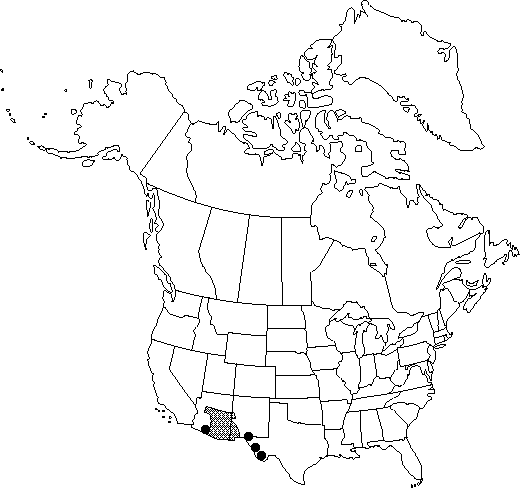Juniperus coahuilensis
Phytologia 74: 450. 1993.
Shrubs or trees dioecious, to 8 m, single-stemmed to 1 m or branched at base; crown flattened-globose to irregular to round. Bark gray to brown, exfoliating in long ragged strips, that of small branchlets (5–10 mm diam.) smooth, that of larger branchlets exfoliating in strips, or occasionally in flakes. Branches spreading to ascending; branchlets erect, 3–4-sided in cross section, ca. 2/3 as wide as length of scalelike leaves. Leaves green to light green, abaxial glands elliptic to ovate, at least 1/4 of glands (on whip leaves) with an evident white crystalline exudate, margins denticulate (at 20×); whip leaves 4–6 mm, glaucous adaxially; scalelike leaves 1–3 mm, not overlapping or if so, by less than 1/4 their length, keeled, apex acute, spreading. Seed cones maturing in 1 year, of 1 size, with straight peduncles, globose to ovoid, 6–7 mm, rose to pinkish but yellow-orange, orange, or dark red beneath glaucous coating, fleshy and somewhat sweet, with 1(–2) seeds. Seeds 4–5 mm.
Habitat: Bouteloua grasslands and adjacent rocky slopes
Elevation: 980–1600(–2200) m
Distribution

Ariz., N.Mex., Tex., Mexico.
Discussion
Roseberry juniper is unusual in that it sprouts from the stump after burning or cutting. Hybridization with Juniperus pinchotii occurs in Big Bend National Park, Texas (R. P. Adams and J. R. Kistler 1991), and possibly near Saltillo, Mexico. Reports of hybridization with J. ashei have been refuted (R. P. Adams 1975).
Selected References
None.